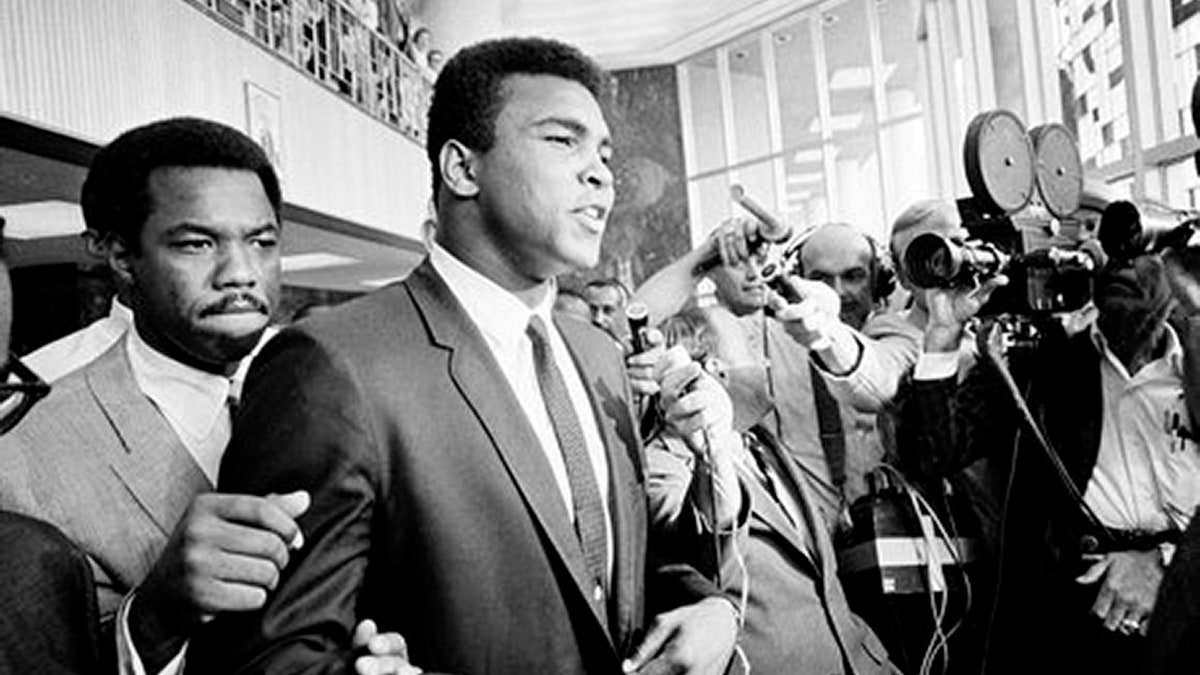
The death of Muhammad Ali – who lived a rags-to-riches story and overcame prejudice and adversity – is a reminder that our nation has benefited and our lives have been enriched by people of every income group, religion, race and ethnicity.
Ali grew up in a working-class family, the son of a father who was a sign painter and a mother who was a domestic worker, and attended segregated all-black schools.
When he left Christianity to become a Muslim and changed his name from Cassius Clay to Muhammad Ali, he was denounced by many. Yet against all odds, he became not just a great boxer and multimillionaire, but a great humanitarian and a beloved icon who worked for peace and harmony around the world.
Fortunately, much progress has been made in the long struggle to make equal opportunity a reality in our country and to embrace diversity as a strength, instead of rejecting it as a weakness. But we still don’t take advantage of the talents of all our people. For example, there are millions of young people born into poor families who could do great things for our nation, if only we opened the doors of higher education to them.
Without college degrees, the career prospects of even our most talented young people are limited. But with degrees, they could make great contributions – healing the sick, starting new businesses to create millions of jobs, working in nonprofits and government, and much more.
Yet many academically qualified young people face tremendous obstacles keeping them out of many colleges and universities – whether because they come from low-income families, are undocumented or for other reasons. In some cases, young people been thrown out of their homes without financial support by their parents for being gay, lesbian, bisexual or transgender.
In my role as executive director of the Jack Kent Cooke Foundation, which awards scholarships to high-achieving students from low-income families, I’ve met many students like these. Thankfully, we’ve been able to help some of them go on to college, but we don’t have the funds to help the millions of young people who could benefit.
Let me tell you about one of these students, a young woman with exemplary grades and a history of volunteering on behalf of her community who submitted an application for a Cooke Scholarship. Let’s call her Teresa.
“At 15, I watched my mother and brother handcuffed and dragged from our home by immigration officials,” Teresa wrote in her application. “I was a minor so they chose not to deport me, but the painful family separation lasted a decade, 10 years’ worth of lonely birthdays and Christmases. I made countless attempts to attend college, but each resulted in failure as my above average grades were not enough to overshadow a missing 13-digit resident number on applications. Disheartened and discouraged, I stopped dreaming.”
Teresa continued: “In constant fear of deportation, my legal status was something I hid even from my closest friends. Since I couldn’t go to college, cleaning gloves and Clorox replaced my textbooks. As a housemaid, I worked 12-hour shifts earning $20 a day. Besides deportation, I also faced the threat of homelessness. My life had no direction; I couldn’t get an education, I couldn’t grow, I couldn’t flourish. No one would give me a chance.”
The story has a happy ending. Teresa now has legal status under President Obama’s Deferred Action for Childhood Arrivals (DACA) program, which defers attempts to expel immigrant children who entered the United States before they turn 16.
She has the grades and academic record to attend an elite college, and the Cooke Foundation will help her do so.
But there are many more Teresas across our nation whose dreams of a college education will never come true. This is not just a personal tragedy for the students. It is an American tragedy.
Muhammad Ali achieved success and world renown without ever going to college. But few young people have the skills to become professional athletes. And today a college degree is required for far more jobs than it was in 1960, when Cassius Clay graduated from high school.
Both morality and our national self-interest demand that we give our young people the chance to climb as high as they can on the education ladder, regardless of the wealth of their families, how they pray, where they come from, the color of their skin or who they love.
Ali called himself "The Greatest." Embracing diversity and equal opportunity for all is what enables America to claim the same title.




















